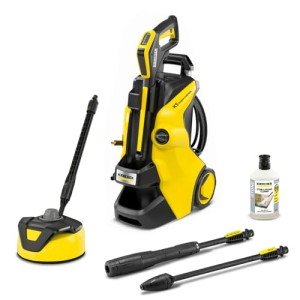A Comprehensive Guide to Buying Power Tools: What You Need to Know
Power tools have actually reinvented the way we carry out different tasks, making them quicker, easier, and more efficient. Whether you are a professional specialist, a DIY lover, or a property owner looking to deal with jobs around the home, understanding how to pick the right power tools is vital. This post serves as an extensive guide to purchasing power tools, discussing types, features to consider, and supplying practical tips to make sure an effective purchase.
Types of Power Tools
Power tools can be classified into various types based on their functions and applications. Here's a breakdown of the most typical types:
| Type of Power Tool | Description | Common Applications |
|---|---|---|
| Drills | Utilized for drilling holes in different products. | Woodworking, building and construction. |
| Saws | Vital for cutting wood, metal, or plastic. | Carpentry, metalwork. |
| Sanders | Smooths surface areas by getting rid of product. | Finishing wooden products. |
| Grinders | Suitable for cutting, grinding, and polishing products. | Metalwork, masonry. |
| Impact Wrenches | Supplies high torque output for attaching. | Automotive repair work, building and construction. |
| Random Orbit Sanders | Integrates rotary and orbital movement for a smooth surface. | Fine woodworking surfaces. |
| Router | Designs edges and hollow out locations in wood. | Woodworking, cabinets. |
| Nail Guns | Speeds up the procedure of attaching materials together. | Framing, roofing. |
Elements to Consider When Buying Power Tools
Choosing the best power tool includes more than just selecting the most popular model. Here are some vital elements to think about:
Type of Project
- Determine the specific tasks you will be performing. Some tools are versatile, while others are more specialized.
Power Source
- Choose between corded and cordless tools:
- Corded Tools: Typically use more power and do not need battery changes but have actually restricted movement.
- Cordless Tools: Offer the convenience of portability but may have lowered power and require battery upkeep.
Tool Quality
- Examine brand credibility, construct quality, and products used. Investing in durable tools might save cash in the long run.
Ergonomics
- Look for tools that are comfy to hold and operate, specifically if you'll be using them for extended periods.
Security Features
- Inspect for features like automatic shut-off, security guards, and redundant controls to guarantee safe operation.
Service Warranty and Customer Support
- Think about the producer's service warranty and the accessibility of client assistance. Reliable warranties can secure your investment.
Budget
- Establish a budget before shopping. Power tools can vary substantially in rate, so it's necessary to find a balance between quality and cost.
Popular Brands to Consider
When looking for power tools, it's beneficial to acquaint yourself with brands understood for their quality and reliability:
- DeWalt: Renowned for durable and high-performance tools.
- Bosch: Offers a wide variety of innovative power tools.
- Makita: Known for light-weight and cordless choices.
- Milwaukee: Features high-torque tools created for durable applications.
- Ryobi: Provides affordable tools without compromising quality.
Tips for Buying Power Tools
To help streamline the getting process, think about the following tips:
Do Your Research
- Review online resources, comparison websites, and customer reviews to make educated decisions.
See Local Hardware Stores
- Experience the tools in person. Hold them, evaluate their weight, and gauge their comfort level.
Try To Find Kit Deals
- Lots of makers offer bundled tool packages, often at a discount, which can be an affordable way to acquire multiple tools.
Watch on Sales
- Check for seasonal sales, clearance occasions, or marketing offers to get the very best deals.
Purchase Accessories
- Do not forget to budget plan for needed accessories like drill bits, blades, or safety equipment, as these can improve the utility of your power tools.
Frequently Asked Questions (FAQs)
1. What are the necessary power tools for home improvement?
The most typically suggested necessary tools consist of a drill, circular saw, jigsaw, and sander. These tools can handle a variety of jobs from simple repair work to bigger projects.
2. Should I buy corded or cordless power tools?
This depends on your requirements. Power Tools Online offer flexibility and movement, making them ideal for outside and remote tasks. Corded tools generally offer more power and are fit for high-intensity tasks or longer projects.
3. How do I keep my power tools?
Routine cleaning, proper storage, and lubrication of moving parts are vital for keeping the durability and efficiency of power tools. Always follow the producer's guidelines for maintenance and care.
4. Can I utilize power tools without experience?
While some power tools are user-friendly and created for beginners, it's vital to comprehend their operation through guidelines or tutorials. Consider enrolling in a workshop or training session for hands-on experience.
5. What security preventative measures should I take when utilizing power tools?
Always use appropriate PPE (personal protective devices) such as goggles, gloves, and ear protection. Ensure your work space is clear and avoid wearing loose clothes or precious jewelry that can become knotted in the equipment.
Purchasing power tools can be a frustrating job, particularly for those brand-new to DIY tasks or building. Nevertheless, by comprehending the different types of tools, considering important factors, and following expert ideas, customers can make informed and gratifying purchases. The best power tools not just improve effectiveness and productivity but also allow users to total tasks with precision and self-confidence. As innovation continues to advance, staying informed will guarantee that you get the most out of your investments in power tools.

